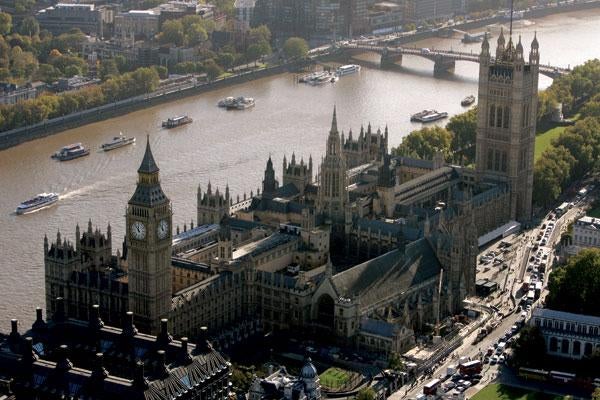
Communications minister Stephen Carter has reassured ITV and Channel 4 that finding a solution to their funding problems is still firmly on the agenda, despite the issue not making it into the Queen’s speech yesterday.
Lord Carter, who joined the Government in October after he was made a life peer, told journalists today that it was still possible for time to be found in Parliament to debate public service broadcasting in the coming year.
Asked at a Broadcasting Press Guild lunch in London whether the issue of public service broadcasting had fallen by the wayside, Carter said he could not guarantee that a solution would be found soon, but added: “What I can say is that the funding issues around public service broadcasting and public service content are firmly on the agenda.”
Channel 4 has warned the communications regulator Ofcom and the Government that it faces a funding deficit of about £150m a year, and has already begun cutting its programme budget and making 150 staff redundant.
“Clearly the Channel 4 question is significant but not the whole part of that,” Lord Carter said today. “Whether or not whatever solution is concluded needs legislation or can be done non-legislatively, I genuinely don’t know.”
Carter, who was the founding chief executive of Ofcom, has assembled a team of advisors including Spectator editor Matthew D’Ancona to compile a major report on the future of digital media and technology, due to be published in January.
At yesterday’s state opening of Parliament, the Queen announced 14 draft pieces of legislation due to be given parliamentary time over the coming year. They included a new Coroners and Justice Bill that could have an impact on how journalists cover crime.
But although Ofcom is coming to the end of its long-running review into the future funding of public service provision on ITV, Channel 4 and Channel Five, a new Communications Act was not one of the items on the agenda.
“At the moment there are no hard answers on the table,” Carter said of the public service broadcasting review. “There are a lot of opinions and a lot of options. The Government hasn’t yet got a hard answer.”
Ofcom outlined a series of draft proposals in September, including one where ITV and Channel Five are relieved of their public service obligations, leaving the BBC and Channel Four to provide news, current affairs and documentaries. The suggestions were put open to a public consultation, which closes today.
Carter said he was hopeful that decisions made by the Government about the future use of the BBC licence fee – and the options for giving part of it to other public service broadcasters – would not be clouded by a recent string of editorial lapses at the corporation, including the furore that erupted when Russell Brand and Jonathan Ross made a series of offensive calls to actor Andrew Sachs,
“I would hope that major public policy decisions are not made off the back of individual incidents, however high-profile,” he said.
Carter also refused to be drawn on whether it was appropriate for management at the major TV companies to receive bonuses this year when they are cutting costs in the face of the oncoming recession.
BBC management have already said they will be waiving their right to a bonus next year because of the funding problems facing the broadcaster.
“Executive remuneration in the BBC is a matter for the BBC and the BBC Trust. The executive remuneration for Channel 4 is a matter for the board of Channel 4,” Carter said.
Email pged@pressgazette.co.uk to point out mistakes, provide story tips or send in a letter for publication on our "Letters Page" blog

